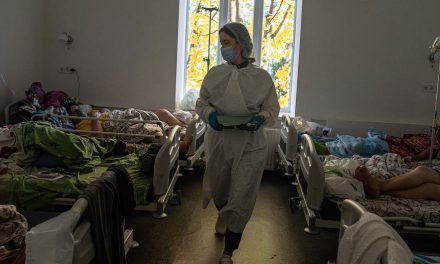An international team of scientists has made a groundbreaking discovery in the understanding of basal cell carcinoma (BCC), the most common human skin cancer. Co-led by Adriana Sánchez-Danés, principal investigator at the Cancer and Stem Cell Biology Lab at the Champalimaud Foundation in Lisbon, the research sheds light on the critical role of the protein Survivin in the initiation and progression of BCC. The findings, published in Cancer Discovery, have the potential to significantly impact the development of new therapeutic approaches for skin cancer.
Basal cell carcinoma is typically non-metastatic and treatable with surgery. However, in some cases, it can become locally aggressive or metastasize. Understanding the mechanisms underlying its initiation and progression is crucial for improving treatment options. “Basal cell carcinoma is by far the most common skin cancer in humans,” Sánchez-Danés said. “We all know people who have had one, if not ourselves.”
In their previous research, Sánchez-Danés and Cédric Blanpain, a co-lead author from the Université Libre de Bruxelles, identified that skin stem cells, rather than progenitor cells, give rise to BCC. Building on this, the team sought to understand what makes stem cells uniquely competent for initiating cancer, as opposed to progenitor cells, which are immediate descendants of stem cells.
Through transcriptional profiling of skin stem cells and progenitor cells in mouse models, the researchers discovered that Survivin, also known as BIRC5, was significantly upregulated in stem cells with activated cancer-causing genes. Survivin is a protein involved in cell division and apoptosis inhibition, and its expression is commonly found in many human cancers, including those of the lung, pancreas, and breast.
To test its role in BCC, the team deleted the Survivin gene in mouse models. The results showed that the absence of Survivin in activated stem cells prevented tumor formation, indicating its essential role in initiating basal cell carcinoma. Conversely, overexpressing Survivin in progenitor cells allowed them to initiate tumors, proving that Survivin is not only crucial for the formation of BCC but also for its progression from preneoplastic lesions to invasive cancer.
Sánchez-Danés emphasized the significance of these findings: “Survivin has been shown to be upregulated in many human tumors, and to be important for tumor growth and maintenance. But this is the first time its role in tumor initiation is described.”
The researchers suggest that targeting Survivin may hold therapeutic potential. They demonstrated that using a Survivin inhibitor in their models led to the shrinkage and elimination of preneoplastic lesions, preventing the progression of BCC. However, the Survivin inhibitor they used was found to be somewhat toxic to the animals, prompting further exploration into alternative strategies.
One promising avenue involves inhibiting a protein called SGK1 (serum and glucocorticoid-regulated kinase 1), which also prevented preneoplastic lesions from progressing into tumors. SGK1 inhibitors, which are already under investigation for other types of cancer, may offer a less toxic alternative to Survivin inhibitors.
“Our key result is that Survivin can help us, in the future, to prevent the generation of invasive basal cell carcinomas,” Sánchez-Danés said, adding that topical applications of Survivin inhibitors could minimize side effects compared to systemic treatments.
This research provides an exciting breakthrough in the understanding of basal cell carcinoma and paves the way for new preventative and therapeutic strategies. The team’s findings underscore the importance of Survivin in cancer initiation and progression, offering hope for future treatments.
Disclaimer: This article is based on research findings published in Cancer Discovery. It is intended for informational purposes and should not be interpreted as medical advice. Please consult a healthcare professional for personalized medical guidance.
For more details, refer to the study “Survivin Promotes Stem Cell Competence for Skin Cancer Initiation” by Sara Canato et al., published in Cancer Discovery (2024). DOI: 10.1158/2159-8290.CD-24-0263.











